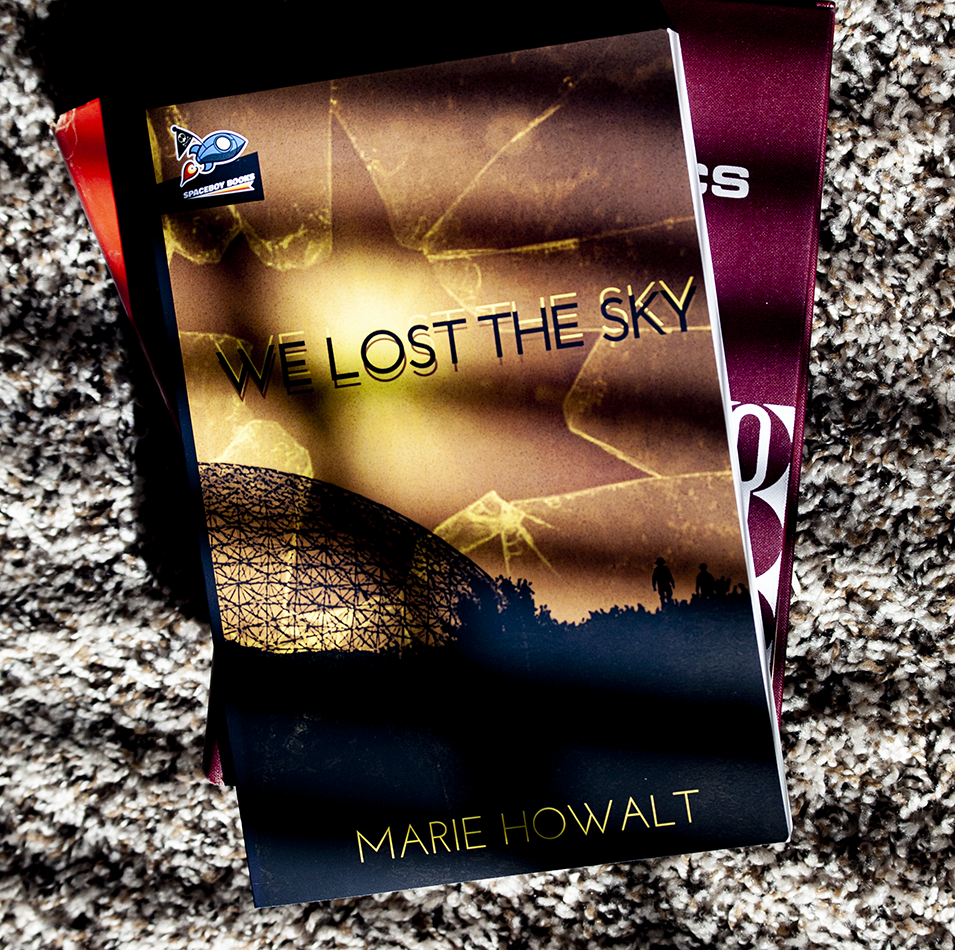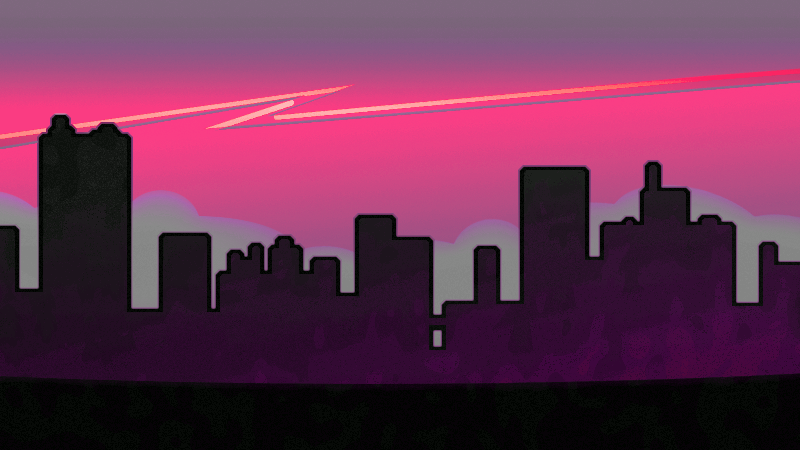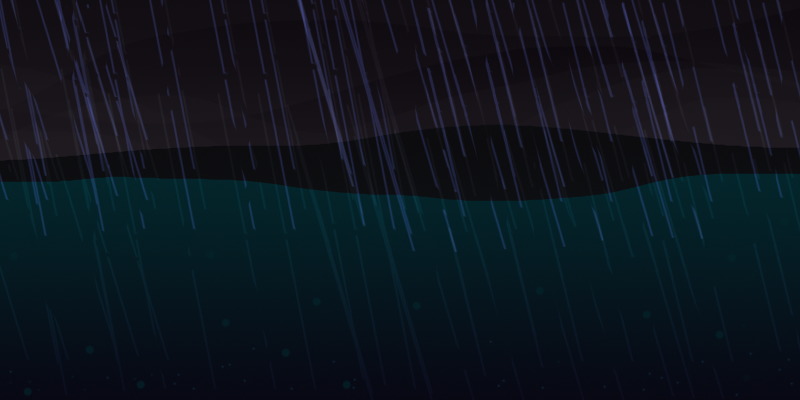
“I think fixing the mess I made is the best remedy,” Luca mumbled.
Luca and Nanny. We Lost the Sky, by Marie Howalt
“I’m afraid there will be none of that,” she retorted.
Luca is a teenager from the futuristic past, before the sky fell, but being a young man out of time does nothing to dampen his spirits. Teo is a young woman that anticipates a future with good friends and technological advances, but first she must face her father and the city he controls. Renn wanders a wasteland that used to be the Italian countryside, and all he wants is to rejoin his traveling group. Mender, an artificial intelligence in an artificial body, wakes in a future that fears sentients like nem or doesn’t believe they exist.
Written by Marie Howalt, We Lost the Sky is a 2019 novel about the post-apocalyptic Earth left over after a meteor strikes the moon. The book is set around what used to be Florence, Italy, and follows the lives of these four protagonists as they fall into a mess of will and circumstance.
Clocking in at 295 pages, this is a full-length novel with plenty of time to explore its characters and setting. The pace is steady, never too fast or slow, and ‘natural’ is the word I think of when thinking about plot progression. Everything happens because it must, because everything chains together into an eventual outcome, and that makes the culminating events satisfying. I know where these characters came from, why they made their decisions, what they could’ve done instead, and how everyone came together for the climax.
“I say it’d be better for all of us if the flood made them leave,” commented the wife of one of the councilmen.
Participants of the Dinner Party
“Or drown,” added her husband. “Just kidding! Just kidding!”
Being a future-based post-apocalyptic society, We Lost the Sky presents people inhabiting a world that is largely unrecognizable. The story picks up decades after the cataclysm, and before that the world already had sentient artificial people and fanciful healing agents. The combination of future tech with a desolate landscape makes Earth seem more an alien world than our home. Though of course, the people are more than recognizable despite the strange surroundings.
Because Howalt does an excellent job at considering the line of consequences for a fallen moon. There are people that worship the moon’s fallen form, or think of her as a lost goddess, and there are signs of the (literal) impacts made by her disappearance. It’s also far enough past the disaster that people have forgotten the history of their downfall and who they even were. There are also clear divisions of those that were prepared versus those that survived. There are hidden caches of cryochambers, dome-covered cities stagnating under protective cover, and nomads purposefully avoiding attachments as they wander a broken world.
This is the setting of Howalt’s We Lost the Sky, and these are the locations that contain our four protagonists. Luca is the descendent of a wealthy family that had a safety chamber of cryo-storage, but he is the only one that survived. Teo is daughter to the man leading a stagnating domed Florence. Renn is the vagrant, and he meets up with the recently-wakened Mender seeking nir programmers for purpose in a lost world.
“Do you think it is always like that? That some people will go hungry while others have plenty?” Renn asked.
Renn and Mender
“I think it is a danger of any society, yes,” ne said.
All four begin the novel separate, alone in their own ways, and at a turning point in their lives. Luca is growing restless and fed up with the downfall of the cities he used to know. Teo is stretching the limits of her freedom. Renn loses track of his covey, the group he travels with for support and belonging. Mender is awakened after the loss of power for centuries.
And then, as events pull them along, the four meet and the knowing of one-another changes lives completely. When Renn meets Mender, he is shown a past that he never even considered. Luca meets these two and remembers loneliness and the promise of companionship. And Teo, though surrounded by the people of Florence, finds an understanding of greater possibility and responsibility with her introduction to the world beyond the city domes.
More than anything, this is a story that is about people finding people and making connections. About how we make judgments and resist change. The setting, with its wastelands and people afraid of the past and future, allow Howalt to highlight the absurdities of human nature. And the grace in our capability for kindness. The setting is used as a tool, though it’s also deep enough that the details feel like genuine byproducts of the broken planet. And it’s never used in a way that drags your face in some dismal reality or heavy-handed forewarning.
And I enjoy a story that has fun while taking itself seriously. We Lost the Sky does that in spades. The characters are living in their world and enjoying what they can, but they also respond properly to the threats and challenges they face. This is no cartoon world without consequences, but it isn’t joyless grimdark with overly-gruesome death and destruction. Luca cracks anachronistic jokes from his past while facing danger, and Teo flirts while toying with political intrigue.
Those interactions, both lighthearted and serious, do a pleasant job at revealing the characters and their ideas and ideals. It provides a discovery of the four lives separately, and all four are well established by the time they discover each other. Then, after the world jumbles them together, the group heads toward a new future with a hopeful message of peace and resolve. I knew them well enough to understand what they’ve lost, gained, and how they might change beyond the last page.
“Move it!” one of the guards behind them yelled. “Break it up!”
Teo
“What are you afraid of?” she shouted back.
I enjoyed We Lost the Sky for so many reasons that I can’t help but recommend giving it a read. On the forefront, Howalt’s book speaks on change, survival, and fear of the unknown. Behind that, this is a story about identity, family, standing up for your ideals, and accepting the wisdom of others. Then, there are sprinkled-in elements on the acceptance of gender, the strength of pacifism, and the values of traditionalism versus progressive ideas. All of these bits combine together into a fun book with fantastic aspects and well-written depth.

Get it at one of these locations, or read additional reviews:
https://www.goodreads.com/book/show/43866656-we-lost-the-sky
https://www.amazon.com/dp/B07NKFL483/ref=dp-kindle-redirect?_encoding=UTF8&btkr=1
https://www.adenng.com/2019/01/31/book-review-we-lost-the-sky/
https://readspaceboy.com/

